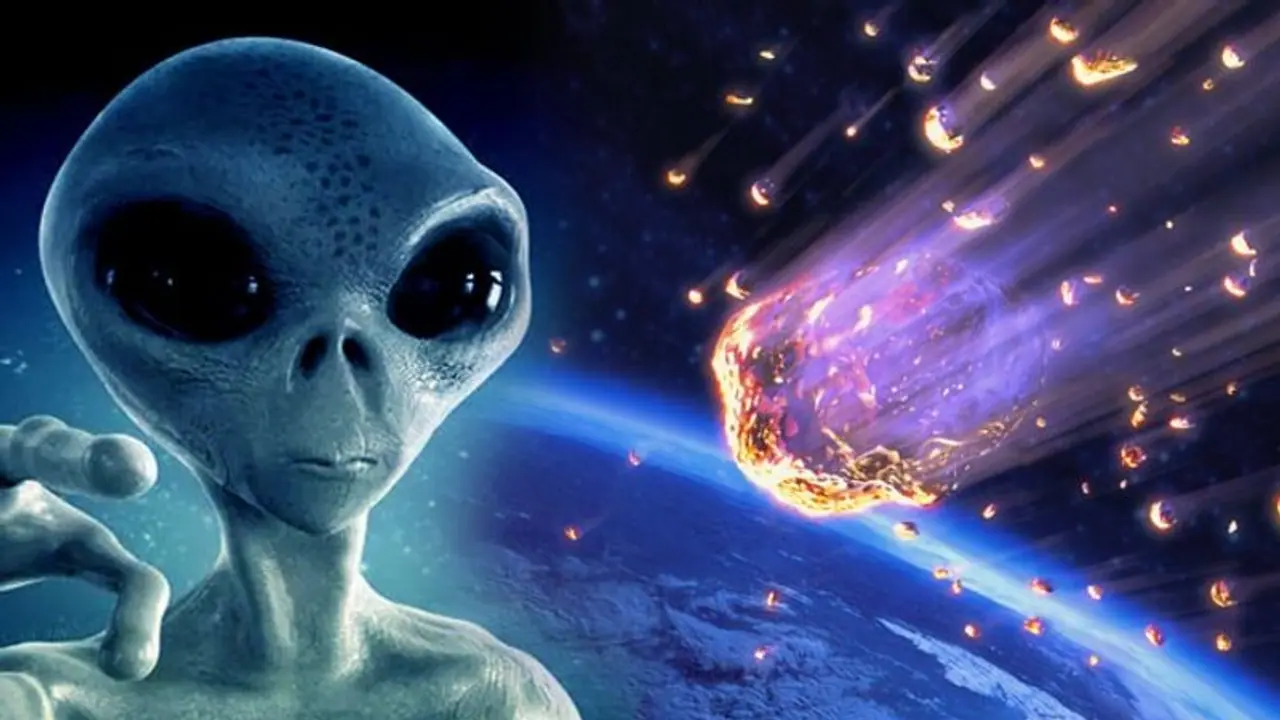Major Tim Peake, a British astronaut who spent half a year aboard the International Space Station (ISS) between 2015 and 2016, might not have spotted a UFO during his orbital stint—but he’s confident we’re not alone in the universe.
Major Tim Peake, a British astronaut who spent half a year aboard the International Space Station (ISS) between 2015 and 2016, might not have spotted a UFO during his orbital stint—but he’s confident we’re not alone in the universe.

Speaking exclusively to MailOnline, the 53-year-old astronaut from Chichester, Sussex, reflected on Earth’s place in the cosmos. “Earth is actually a pretty small place,” he said, putting humanity's cosmic perspective into focus.
“When you look at just our own Milky Way galaxy with 200 billion stars, that's one of a number of hundreds of billions of galaxies that we can see,” Peake told MailOnline. “So the chances are that there is complex, intelligent life elsewhere in the universe.”
The spaceman’s remarks come as scientists edge close to discovering alien life. In April, researchers revealed that a distant exoplanet named K2-18b shows signs of chemicals in its atmosphere that could hint at lifeforms.
While conclusive proof remains elusive, Peake believes we are standing on the threshold of a revelation that could reshape human understanding. “We know that the universe is abundant with water, it's abundant with the seeds of life,” he said.
“We've discovered so many thousands of exoplanets in our neighbourhood which are orbiting stars, many of which have very good signs of potential habitability with liquid oceans for example.
“Within the next five to 10 years, using the James Webb Space Telescope for example, we could even get to the situation where scientists feel confident enough to be able to say that they found signs of biological life on another planet.
“It might be small bacteria, it might be algae, giving off some signs of biological processes. But that's the kind of thing that we're getting close to be able to say for sure.”
Peake's mission aboard ISS
During his groundbreaking mission aboard the ISS, Peake made history by becoming the first British astronaut to complete a spacewalk. On January 15, 2016, suspended 250 miles above Earth, he stepped outside the station with the dazzling blue orb below him. Though the nearly five-hour EVA (extravehicular activity) was cut short due to a colleague’s helmet issue, it remains a landmark moment in UK space history.
Nearly a decade later, Peake describes the experience as “very surreal” and difficult to articulate. “The feeling is a mixture of appreciating how remote and isolated our planet is,” he shared.
“I hesitate to use the word fragile because actually the planet's pretty robust – it's survived 4 billion years; it's got another 4 billion to go before the sun will cause its demise.
“But what you appreciate from space is not necessarily its fragility but its remoteness and the level of isolation against this vast black backdrop of the universe.
“And it strikes you that that is home – that's the only planet we've got to live on.
“On the one hand it makes you feel fairly small and insignificant but on the other hand it does make you appreciate that we are incredibly special.”
Peake spoke ahead of his appearance at this summer’s Goodwood Festival of Speed, where he’ll serve as ambassador for the Future Lab, an exhibition spotlighting frontier technologies.
Peake is on the brink of a return to orbit. As a strategic advisor for a bold new mission led by US company Axiom Space, plans are underway to send an all-British crew into space for the first time. And while he wouldn’t confirm whether he’ll lead the mission, the signs are written in the stars.
“I'm an astronaut who's fit and able to fly to space and command a mission,” he said. “So absolutely I'm willing and ready to command the mission and fly to space.”

